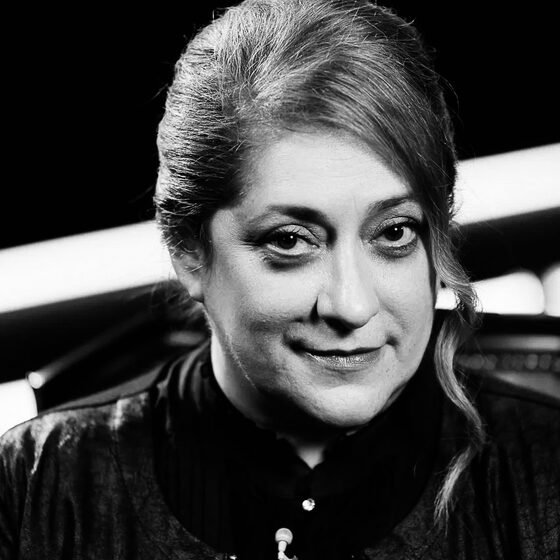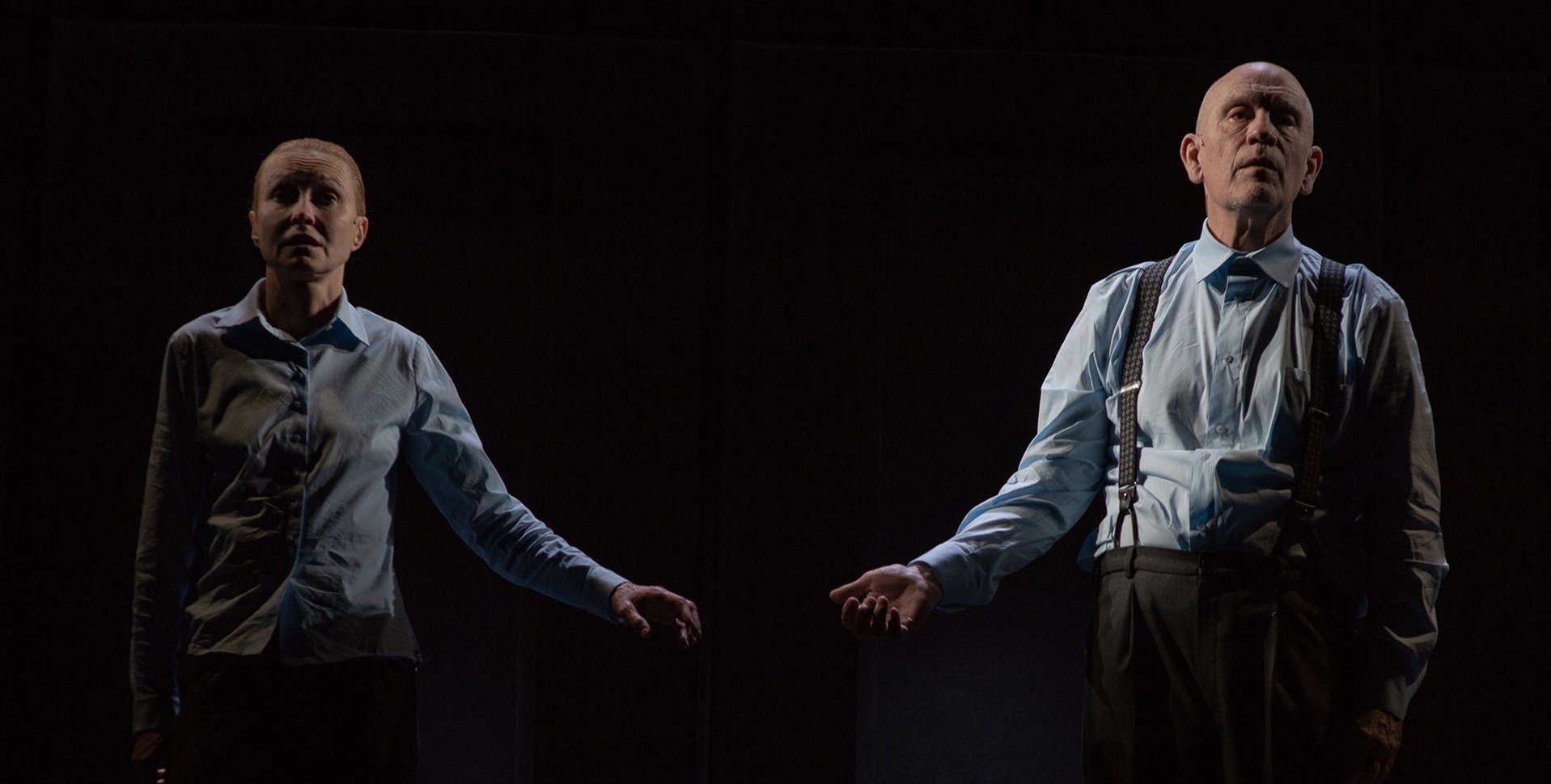A deal is a commercial transaction concerning goods that are prohibited or otherwise strictly controlled. Deals take place in neutral and undefined spaces -- spaces not meant for such transactions -- between those who have and those who seek, by tacit understanding, by agreed upon signals, by innuendo -- at any time, day or night, other than the hours when duly licensed businesses are open, but, rather, when such commerce has shut its doors. The goal is to avoid the risks of betrayal and scamming frequent in such deals.
In The Solitude of Cotton Fields
The Client
So let me propose equality. For a jacket in the dust, I’ll pay with a jacket in the dust. Let us be equals, equal in pride, equal in powerlessness, equally unarmed, equally suffering. I’ll pay for your half nakedness, your half humiliation, with half of mine.
The Dealer
There are no rules; there are only means; there are only weapons.
About
Duration: 1h 10min
Age restrictions: 18+
Language: English
During the tour in Germany and Czech Republic in June 2025 with Russian and local subtitles (German and Czech accordingly)
Premiere took place in Riga, Latvia on May 28th, 2022.
Coproduction Ekaterina Yakimova and The famous play by Bernard Marie Koltes was written in 1985. The given circumstances are strange. Two people meet in a dark cross street, one is the "seller", the other is the "buyer". The seller is trying to sell the buyer something that he has to tell himself. However, the buyer does not want to call this object by name and refuses the transaction in any way. The play is their argument, the confrontation of these two people, expressed in a play of words and meanings.
Koltes' text is very dense, verbose, full of allusions, poetic images and complex twists. The author seems to be trying to confuse the viewer rather than help them understand the conflict. It is not immediately clear to the viewer (like the reader, perhaps after reading the text only once) that the object of the trade is sexual lust. Since both characters are male, we understand that this is a homoerotic play. And both men must confess their lust. However, neither one nor the other wants to call things by their real names, they talk in circles, and it becomes clear to us that this dispute will not be resolved. Today, the topic of forbidden, unspoken, but irresistible lust must be revealed in a different way.
The idea is implemented using rather complex technical support. In addition to the actors, the performance involves five videographers who work online. Therefore, the performance is supposed to be very spectacular - with video effects, with close-ups of actors' faces.
Our show is about sexual perversion, about a hidden desire that is punishable, recognized as criminal by any society, but already according to today's laws. There are two actors in our show - Ingeborga Dapkūnaite and John Malković, but not two characters. We are in the subconscious, in someone's nightmare, and he is not physically on the stage. He lives in terrible internal disharmony because he has realized that his sexual desire is criminal. But that's his nature and he can't fight it. He wants to admit it to himself, but he can't, because it is both scary and dangerous. We are in a man who endlessly struggles with himself. It is a projection of his consciousness, a nightmare in which he is constantly trying to come to terms with himself. Therefore, he comes up with these two himself, the seller and the buyer. Two entities are fighting. The further we go, the better we understand what the story is about. The actors will change roles during the performance. And after a while we will realize that it is a person's inner monologue that breaks down into a dialogue. It is the last dialogue before the tragedy…
— Timofey Kulyabin

The cotton fields are only mentioned once in the famous play by Bernard-Marie Coltes. In France, and in Europe in general, cotton does not grow, perhaps Coltes saw such fields in Mexico during his last trip in his life - in 1989, upon returning to Paris, he died of AIDS. And these endless deathly pale white fields, merging on the horizon with white clouds, became for him a symbol of human loneliness and longing. A beautiful image - and a strange play without action, consisting of endless conversations as if about nothing, going back to the tradition of existential French drama, which is not very much in demand by modern theater.
— Nina Agisheva, “In the fields of death and misery”
Cast
John Malkovich
John Malkovich is an internationally acclaimed actor, director, and producer known for his intense presence and fearless artistic choices. With a career spanning over four decades, he remains one of the most compelling figures in contemporary performance.
He has appeared in over 70 films, including Dangerous Liaisons, Being John Malkovich, In the Line of Fire, Ripley’s Game, Bird Box, and Burn After Reading, working with directors such as Spielberg, the Coen Brothers, Bertolucci, and Zemeckis.
On stage, Malkovich is known for bold, provocative performances, including The Infernal Comedy and In the Solitude of Cotton Fields by Bernard-Marie Koltès, which continues to tour globally. He also starred in Il Giustino, a concert-theatre piece with Cecilia Bartoli, blending Baroque music and monologue. As a director, his acclaimed Good Canary toured across Europe, noted for its psychological insight and multimedia staging.
Recent screen work includes A24’s Opus, Seneca – On the Creation of Earthquakes, and The Yellow Tie, in which he plays Romanian conductor Sergiu Celibidache. He is currently filming Wild Horse Nine by Martin McDonagh.
In 2025, Malkovich joins the Marvel Cinematic Universe in Fantastic Four: First Steps, taking on a major role in one of the year’s most anticipated films.
Ingeborga Dapkunaite
Ingeborga Dapkunaite is an internationally renowned, London-based, Lithuanian actress. She has played numerous leading parts in film, television and theatre.
She starred in ‘Burned by the Sun’ by Nikita Mikhalkov (Oscar for Best Foreign Film, Grand Prix de Jury at Cannes FF), ‘Katia Ismailova’ by Valery Todorovsky (Best Actress Award at Geneva FF and Russian Film Academy Award), also in Brian de Palma’s ‘Mission Impossible’, Jean-Jacque Annaud’s ‘Seven Years in Tibet’, Emily Young’s ‘Kiss of Life’(premiered at Cannes FF), Stéphane Voillet’s ‘25 Degrees of Winter’(Audience Award at Berlin FF), Christian Carion’s ‘D’Affaire ‘Fairwell’ and ‘Occupied’ Norwegian TV series amongst others.
Ingeborga’s theatre work includes productions around the world — ‘Slip of the Tongue’ opposite John Malkovich at Steppenwolf Theatre in Chicago and then in London’s West End, ‘Libra’, directed by John Malkovich at Steppenwolf, ‘Cloaca’ directed by Kevin Spacey at the Old Vic in London, World Tour with Giacomo Variations, leading roles in productions of Moscow Theatre of Nations from 2013 till 2022.
Our Team
-

Timofey Kulyabin
Director
-

Roman Dolzhanskiy
Dramaturg
-

Oleg Golovko
Stage Designer
-

Timofei Pastukhov
Sound Designer
-

Oscars Paulins
Lighting Designer
-

Alexander Lobanov
Video Designer
-

Vladimir Burtsev
Director of Photography
-

Anastasia Zhuravleva
Video Production
-

Anna Abalikhina
Choreographer
-

Irina Paradnaya
Executive Producer, Administrative Director
-

Ekaterina Yakimova
General producer
-
Siarhei Rylko
Technical Director and Production Manager
-
Yara Ziva-Chernova
Line Producer
-
Elias Kuznetsov
Tour Manager
-
Kseniia Vinichenko
Stage Manager
-
Pavel Minarskii
Video Operator
-
Andrey Mytnik
Video Operator
-
Frol Podlesnyi
Video Operator
-
Aleksandr Razuvalau
Video Operator
-
Anton Rodionov
Mediaserver Operator
-
Filippos Karetsos
Sound Engineer
-
Alexandros Ioannis Hills
Light board operator
-
Eftychia Topi
Stand-In Actress
-
Nikistratos Ntalagiorgos
Stand-In Actor
-
Maria Pushkina
Stand-In Actress
-
Valerii Zazulin
Stand-In Actor
General Partner of the Project
Presented by
Past performances
-
Dailes Theatre
May 28 - 31, 2022
Riga, Latvia
-
Onassis Stegi
February 9 - 12, 2023
Athens, Greece
-
National Theatre
February 16 - 18, 2023
Sofia, Bulgaria
-
Alexela Concert Hall
April 21 - 22, 2023
Tallinn, Estonia
-
Compensa Hall
April 26 - 27, 2023
Vilnius, Lithuania
-
Campania Teatro Festival
July 8 - 9, 2023
Naples, Italy
-
Tbilisi International Theatre Festival
March 22 - 23, 2024
Tbilisi, Georgia
-
International Theatre Amsterdam
April 13 - 14, 2024
Amsterdam, Netherlands
-
Thalia Theater
April 20 - 21, 2024
Hamburg, Germany
-
Hessisches Staatstheater Wiesbaden
May 11 - 12, 2024
Wiesbaden, Germany
-
Sibiu Internațional Festival (FITS)
June 26 - 28, 2024
Sibiu, România
-
Kontakt International Theatre Festival
June 6 - 7, 2024
Torun, Poland
-
Admiralspalast Berlin
June 9 - 11, 2025
Berlin, Germany
-
Capitol Theatre
June 17 - 18, 2025
Dusseldorf, Germany
-
Divadlo Hybernia
June 21 - 22, 2025
Prague, Czech Republic
Need more information?
Please, reach out to us if you’re interested in partnership or need more information















